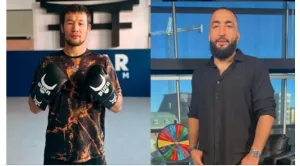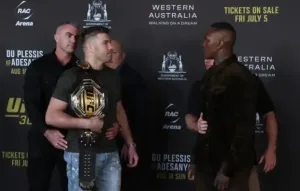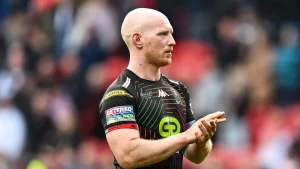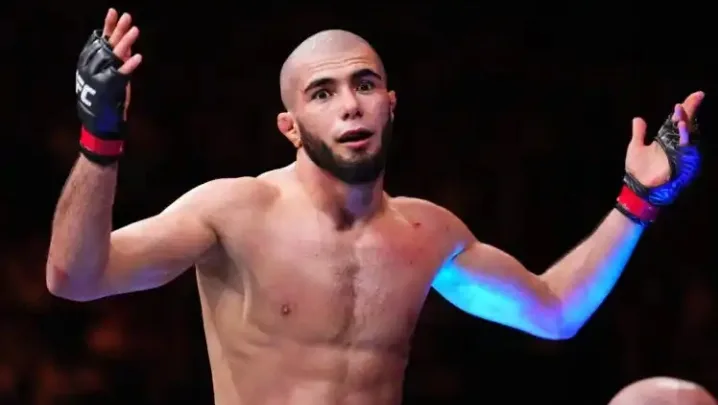
Muhammad Mokaev asked the UFC if he could ‘fight for free’ in order to get re-signed after his unceremonious axing…
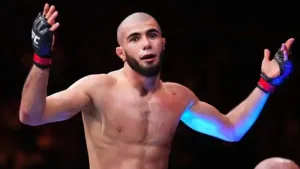
Muhammad Mokaev, a promising young talent in mixed martial arts, recently made headlines when he requested to fight for free to secure his position with the UFC after his release.
This unusual approach underscores Mokaev commitment to his career and his belief in his potential.
His willingness to forgo compensation reveals both his dedication to the sport and his desperation to reclaim his spot in one of the premier fighting organizations in the world.
Mokaev who gained attention with an impressive amateur career and subsequent success in professional MMA, had been seen as a rising star.
His technical skills, combined with his aggressive fighting style, made him a standout in the flyweight division.
However, despite his talent and the high expectations surrounding him, Mokaev faced setbacks that led to his departure from the UFC.
The decision to release Mokaev was met with surprise by many, as his performances had shown promise and he was considered a future contender.
The UFC’s decision-making process can often be opaque, influenced by a mix of factors including fighter performance, marketability, and personal issues.
the specifics behind his release remain unclear, but the move left a void in the division that many hoped he would fill.
In a bid to reverse this situation, Mokaev proposal to fight for free was a bold statement.
He reached out to UFC officials, offering to compete without any financial compensation.
This proposal was not just a gesture of goodwill but also a strategic move to demonstrate his unwavering dedication and to highlight his belief in his own abilities.
By removing the financial barrier, Mokaev aimed to show that his priority was not money but proving himself inside the octagon.
The UFC’s response to Mokaev’s proposal would be closely watched. On one hand, the UFC could view this offer as a testament to Mokaev’s commitment and potentially reconsider his status.
On the other hand, the organization might have concerns about setting a precedent where fighters offer to work without pay, which could complicate contractual norms and financial expectations in the sport.
Mokaev’s situation also brings to light broader issues within the fight game, including the financial pressures faced by fighters.
The willingness to fight for free underscores the financial sacrifices many fighters make in pursuit of their careers, illustrating the tough realities of the sport where opportunities are often limited and competition is fierce.
Whether or not Mokaev’s offer will lead to his reinstatement with the UFC remains to be seen.
However, his actions reflect a deep passion for fighting and a resilience that could potentially serve him well in the future.
As he navigates this challenging period, Mokaev’s story serves as a reminder of the high stakes and the personal sacrifices involved in the pursuit of a career in professional MMA.
Ultimately, Mokaev’s willingness to fight for free highlights the intense dedication required to succeed in the highly competitive world of mixed martial arts.
His future in the UFC will depend on various factors, including the organization’s assessment of his potential and the current dynamics within the flyweight division.
Regardless of the outcome, Mokaev’s bold move speaks volumes about his character and his relentless pursuit of his goals in the sport.
